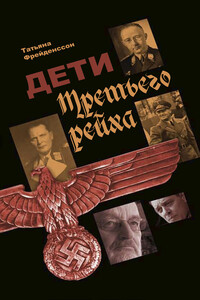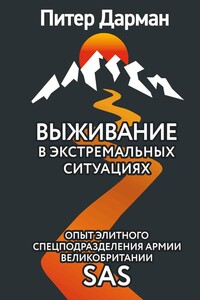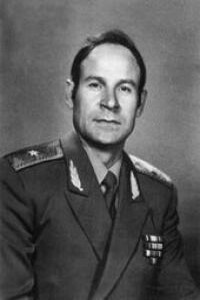The Boy Scouts In Russia - [3]
"I am quite sure of it," said Fred, eagerly. "I don't want to trouble you, but if you could help me to get there-"
A soldier interrupted him. He stepped up to Ernst, saluted, and, permission given, spoke in the officer's ear. Ernst started.
"One minute," he said. "I am called away-I will return in one minute."
The minute dragged itself out. In all directions there was a rising sound, confused, urgent. Fifteen minutes passed. Then a soldier came to Fred.
"The lieutenant will see you inside," he said, gravely.
Fred followed him. Ernst, his face sober, but with shining eyes, spoke to him at once.
"War has been declared," he said. "War between Germany and Russia! My young friend, you are in hard luck! The train from which you were expelled is the last that will even start for Berlin until the mobilization is complete."
Outside there was a sudden rattle of rifle fire. Fred stared at the German officer.
"That is the beginning," he said. "We happen to have the stronger force here. We are taking possession of the Russian side of the border station! I wish we might catch Suvaroff-he is a good soldier, that one at least, and worth a division to the Russians. But there'll be no such luck. He'll have got away, of course-a fast motor, or some such way. And they've got more troops close up than we have."
And still Fred stared. He seemed unable to realize that this popping of rifles, this calm, undemonstrative series of statements by an unexcited German officer, meant that war had come at last-the European war of which people even in America had talked for years as sure to come!
"As for you, I meant, of course, to lend you the money and let you go on to Berlin," said Ernst. "Now I can lend you the money, but there will be no trains. You can't stay here. The Russians, I think, will advance very quickly, and it will not be here that we shall try to stop them, but further back and among the lakes to the south. Even if there is a concentration, however, foreigners will not be wanted."
"What shall I do?" asked Fred.
"You speak German?"
"Yes."
"Then I shall lend you some money-what I can spare. You can start back toward Koenigsberg and Danzig. Your consul will be able to help you. You can walk and the people will gladly sell you food."
"Yes, and thank you for the chance, I'm a Boy Scout; I won't mind a hike at all." CHAPTER II
So it was arranged for Fred Waring, thousands of miles from home, to start from Virballen. The lieutenant who had saved him from Suvaroff lent him what money he could spare, though all told it was less than a hundred marks, which is twenty dollars.
"Good-bye, and good luck go with you," said Ernst. "If we do not meet again it will be a real good-bye. If you can send the money back, let it go to my mother in Danzig. If you cannot, do not let it worry you! If any people ask you questions, answer them quickly. If any tell you to stop, stop! Remember that this is war time and every stranger is suspected. You will be in no danger if you will remember to answer questions and obey orders."
"Thank you again-and good-bye," said Fred. He had known this German officer for only a few minutes, but he felt that he was parting from a good friend, and, indeed, he was. Not many men would have been so considerate and so kindly, especially at such a time, to a strange boy from a foreign land, and one, moreover, who had certainly not come with the best of recommendations. "I-I hope you'll come through all right."
"That's to be seen," said Ernst, with a shrug of the shoulders. "In war who can tell? We take our chances, we who live by the sword. If a Russian is to get me, he will do so, and it will not help to be afraid, or to think of the chances that I may not see the end of what has been begun to-night! We have been getting ready for years. Now we shall know before long if we have done enough. The test has come for us of the fatherland."
And then Fred said a bold thing.
"I can wish you good luck and a safe return, Lieutenant," he said. "But I can't wish that your country may be victorious because my mother, after all, was a Russian."
"I wouldn't ask that of you," said Ernst, with a laugh. "Even though it is Prince Suvaroff's country, too?"
"There are Germans you do not like, I suppose-who are even your enemies," said Fred. "Yet now you will forget all that, will you not?"
"God helping us, yes!" said Ernst. "You are right. Your heart must be with your own. But you don't seem like a Russian, or I would not be helping you."
Then Fred was off, going on his way into the darkness alone. Ernst had told him which road to follow, telling him that if he stuck to it he would not be likely to run into any troop movements.
"Don't see too much. That is a good rule for one who is in a country at war," he had advised. "If you know nothing, you cannot tell the enemy anything useful, and there will be less reason for our people to make trouble for you. Your only real danger lies in being taken for a spy. And if you are careful not to learn things, that will not be a very great one."

Герои этой книги – потомки нацистских преступников. За три года журналист Татьяна Фрейденссон исколесила почти полмира – Германия, Швейцария, Дания, США, Южная Америка. Их надо было не только найти, их надо было уговорить рассказать о своих печально известных предках, собственной жизни и тяжком грузе наследия – грузе, с которым, многие из них не могут примириться и по сей день. В этой книге – не просто удивительные откровения родственников Геринга, Гиммлера, Шпеера, Хёсса, Роммеля и других – в домашних интерьерах и без цензуры.

В книге рассказывается история главного героя, который сталкивается с различными проблемами и препятствиями на протяжении всего своего путешествия. По пути он встречает множество второстепенных персонажей, которые играют важные роли в истории. Благодаря опыту главного героя книга исследует такие темы, как любовь, потеря, надежда и стойкость. По мере того, как главный герой преодолевает свои трудности, он усваивает ценные уроки жизни и растет как личность.

Автор, один из фигурантов громкого «театрального дела» режиссёра Кирилла Серебренникова, рассказывает историю своего «сопротивления». Книга эта – одновременно и триллер, и крутой детектив, и готический роман ужасов, это и жесткий памфлет, и автобиография. Но как бы ни определить её жанр, это повествование о стойкости, верности убеждениям и своему делу.

«Чтобы выжить, вам необходимо овладеть искусством выживания, особенно психологическим его аспектом, поскольку от этого в конечном счете и зависит, останетесь вы в живых или погибнете», — говорит Питер Дарман. В его книге «Выживание в экстремальных ситуациях» собран опыт элитных подразделений, таких как SAS и «Морские котики» США. В основе выживания лежат самые простые вещи: правильное использование одежды, инструментов, подсобных предметов и, главное, ваша психологическая готовность. Автор рассказывает о том, как выжить в различных нештатных ситуациях: в пустыне, тайге, джунглях, на Крайнем Севере.

"Великий человек, яркая личность, Божий дар Беларуси" - так Михаила Николаевича Пташука называли еще при жизни наши современники и с любовью отмечали его уникальный вклад в развитие отечественного, российского и мирового кинематографа. Вклад, требующий пристального внимания и изучения. "И плач, и слёзы..." - автобиографическая повесть художника.

В книге рассказывается история главного героя, который сталкивается с различными проблемами и препятствиями на протяжении всего своего путешествия. По пути он встречает множество второстепенных персонажей, которые играют важные роли в истории. Благодаря опыту главного героя книга исследует такие темы, как любовь, потеря, надежда и стойкость. По мере того, как главный герой преодолевает свои трудности, он усваивает ценные уроки жизни и растет как личность.